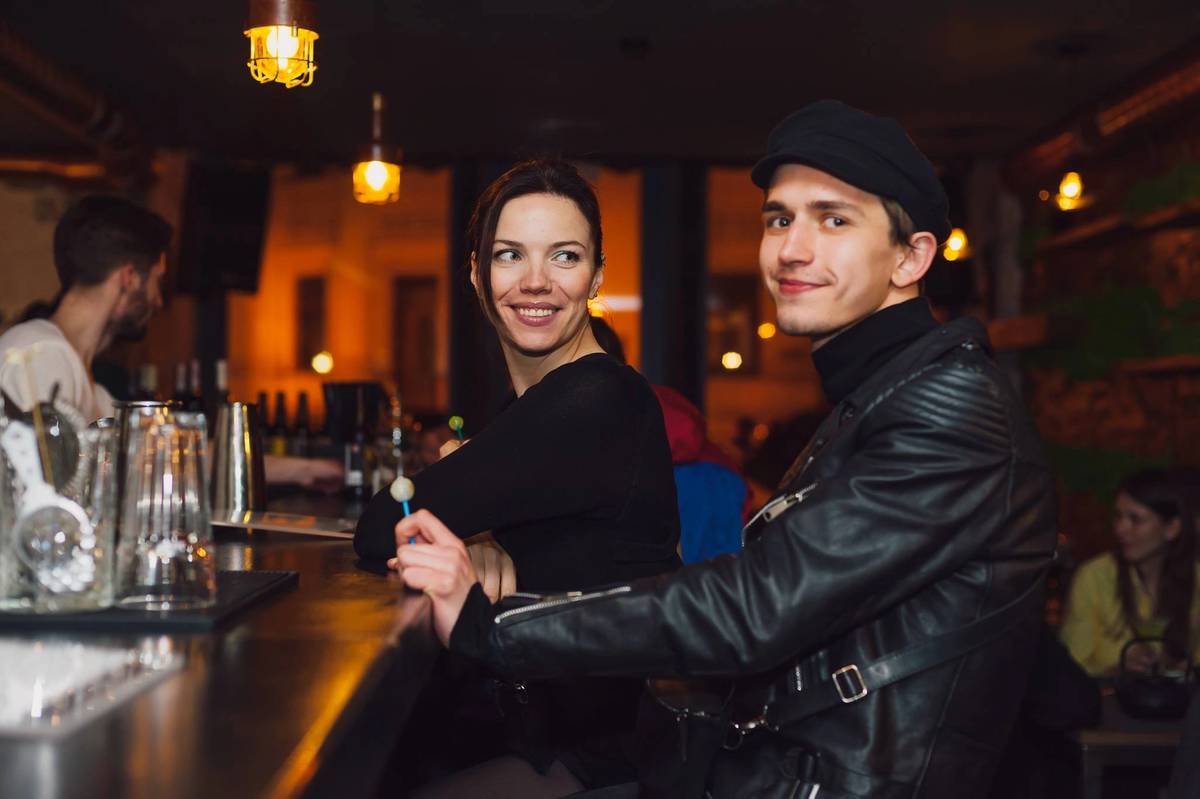Dizyngoff, a newly opened Israeli-Parisian-Asian fusion restaurant in Odessa, is halfway between the Potemkin Stairs and the majestic statue of Catherine the Great that replaced one of Lenin in the early nineties. Its slogan? “Casual dining and optimistic bar.”
Odessan cuisine is a motley melange of Russian, Ukrainian, Bulgarian, Moldovan, and Jewish influences. Classic dishes like forshmak and tzimmes can still be found on the menus of most upscale restaurants, even those where the young servers who wait tables have no idea about their Jewish provenance. On the other hand authentic, Jewish cuisine is oddly hard to come by in a port town where the Jewish population stood at approximately 180,000 people before World War II. Hebron is a kosher fallafel shack attached to one the city’s main synagogues, but its sandwiches would not pass muster on any corner of any street in the Middle East. Rosemary was Odessa’s only serious kosher restaurant, but it closed down several years ago.
Dizyngoff, then, (or “Dizzy” as regulars call it), is part of a story of a new generation of young, Western-educated Odessans who are moving back to the city after living abroad in cities like Tel Aviv and Paris. The restaurant’s four founders named their business after the first mayor of Tel Aviv, Meir Dizengoff, who had spent his formative years in Odessa; it’s intended to draw historic parallels between Odessa and Tel Aviv, which of course had been partly patterned after Odessa. (The interior is decorated in a sparse modern style familiar from the world over, but it contains Hebrew signs, such as “Rechov Hasvuraim,” that the founders brought back from the Yaffo flea market.)

The founder’s Odessa roots grow deep. The restaurant’s mastermind and main chef Nika Lozovskaya, 25, is a granddaughter of the well-known physicist and chess master Arkady Weiner, who as an amateur historian and has also compiled half a dozen volumes of Odessa lore. Lozovskaya spent the better part of six years studying hotel management and culinary arts in Switzerland and France, finishing her degree of studies at Paris’s famed École Grégoire-Ferrandi, before returning to Odessa. “My main objective was to do something simple but very good,” she said, “to mix new with the old and utilize my French culinary training in Odessa. I really enjoy playing around with fresh ingredients [and spices]. A lot of miso, cardamon, and cumin.”
Dizyngoff’s menu is heavy on different varieties of hummus, and whipped goat cheese with figs and honey. There are tabbouleh and couscous dishes, of course, as well as Odessa comfort specialties like chicken frikadelki (meatballs) as well as Mediterranean-style spreads, tapenades, and guacamole. There are liberally spiced soba noodles. Half the menu is expected to change at the end of every season.
The restaurant’s co-founder, designer and resident DJ Nikolay Karabinovych, is a well-known, 26-year-old local artist. (Karabinovych’s work was selected for the top 16 of the shortlisted artists for the 2015 PinchukArtCentre Prize.) Karabinovych, who sports a high-level hipster mustache as well the Ukrainian nationalist Cossack haircut fashionable post-Maidan, informed me that prior to the restaurant’s opening he had no venue in the city to spin ethnic Middle Eastern dub music.

The other two founders, Alexander Vlasopolov and Garry Kraevetz, both 24, have been friends since they met in first grade at the Chabad-run Jewish day school in Odessa, and worked together at the local nightclub Shkav before traveling to Israel together on Birthright.
“This is a deeply Jewish themed and influenced restaurant but not one based in Israeli cuisine perse,” said Vlasopolov. “In Tel Aviv and Odessa—both are Jewish cities full of all sorts of people, it’s multicultural. So we think of ourselves as a Tel Aviv restaurant in Odessa rather than an Israeli restaurant.
“Deep inside of ourselves, figuratively speaking we consider ourselves to be Orthodox Jewish hipsters. The Orthodox have an answer to every question in life, they are the happiest people you will ever meet,” Vlasopolov told me with a wry smile.
The drinks on the menu prepared by the fetching tattooed bartenders include such classic concoctions such as “Damascus Gate,” “Berry Sisters,” “Purim Spiel,” “Boker Tov,” and “Haifa in Blossom.” Damascus Gate, for example, is composed of gin, vermouth, masala, and Lime. This week the bar is phasing in the Meyer Lansky, a drink named after the Jewish gangster, containing honey, bourbon, port wine, and lemon.
That puckish sense of humor includes a planned thematic French cuisine week “Dreyfus Week,” which will include classical French dishes.
Odessa is a perennially hedonistic city that has always known how to have a good time and how to serve a good meal, but a contemporary restaurant scene is only beginning to emerge now. The taste for mixed cocktails is only now penetrating in Odessa. The first crop of bars serving artisanal drinks only having opened within the last year or so. While some might label this a superficial concern, is it not also part of the pro-Western future for which young people threw Molotov Cocktails at interior ministry troops during the Maidan protests?
Anyone who travels to Odessa this summer should have a Woody Allen—a Ukrainian take on the Moscow Mule, with cucumber, tonic, vodka, and ginger—and think about the revolution.
Vladislav Davidzon is Tablet’s European culture correspondent and a Ukrainian-American writer, translator, and critic. He is the Chief Editor of The Odessa Review and a Non-Resident Fellow at the Atlantic Council. He was born in Tashkent, Uzbekistan, and lives in Paris.